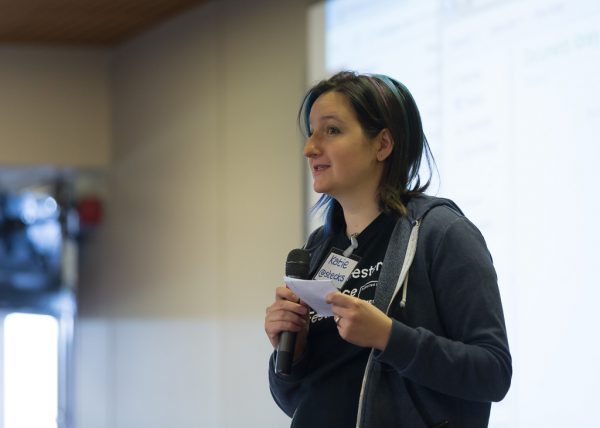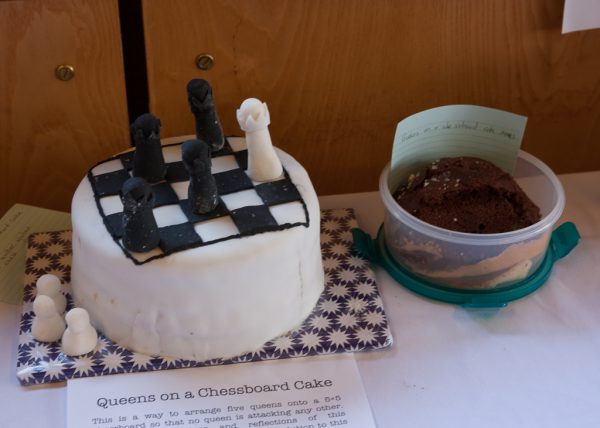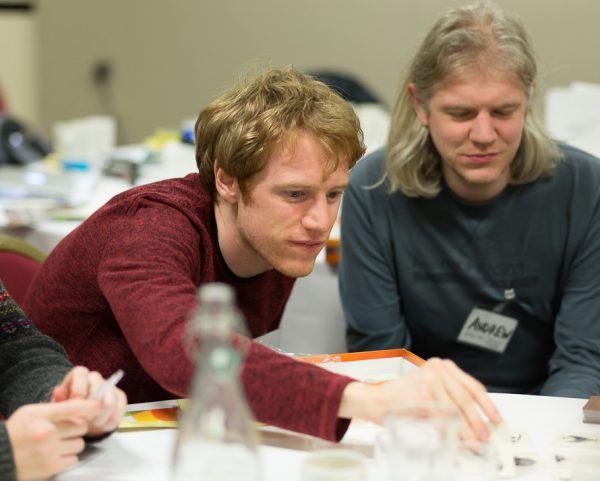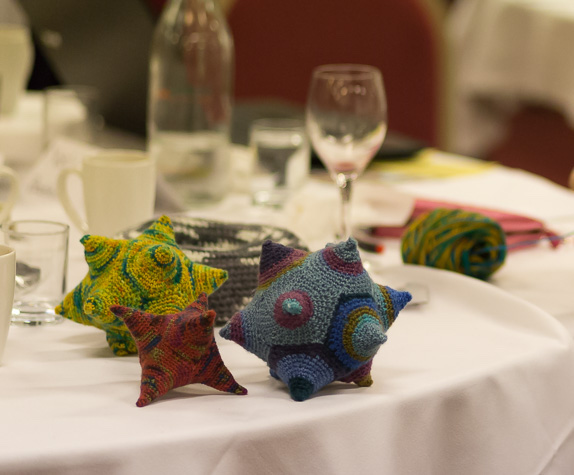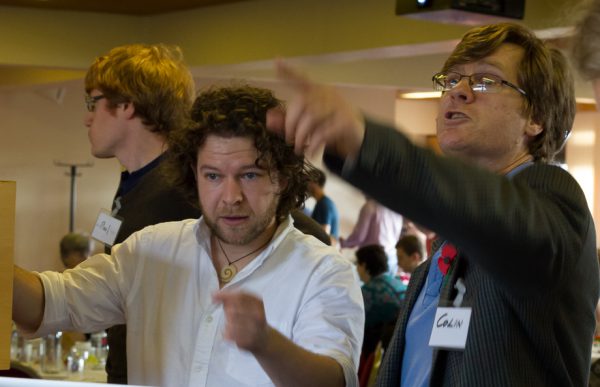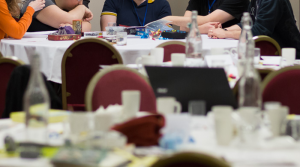 It was with trepidation that I booked tickets for the MathsJam Gathering in 2015. I loved the sound of the event, but what if everyone else was cleverer than me? What if people thought I was a fraud because I wasn’t an academic? What if nobody talked to me? I needn’t have worried. MathsJam is one of the friendliest, most welcoming events I’ve ever experienced. Lots of people talked to me, I learned new things, I laughed a lot. I’ve since been to two more gatherings, and have already booked for the next one in November.
It was with trepidation that I booked tickets for the MathsJam Gathering in 2015. I loved the sound of the event, but what if everyone else was cleverer than me? What if people thought I was a fraud because I wasn’t an academic? What if nobody talked to me? I needn’t have worried. MathsJam is one of the friendliest, most welcoming events I’ve ever experienced. Lots of people talked to me, I learned new things, I laughed a lot. I’ve since been to two more gatherings, and have already booked for the next one in November.
So what’s it all about?
The daytime event is split into blocks of several five-minute talks. This is just enough time to show something interesting, but not enough to go into detail. At the end of each block there is a break, during which the speakers stand at the front so that anybody who wants to know more about their talk can, well, talk to them.
There is a huge variation in subjects. Here are some of the highlights from the three years that I’ve been.
- DIY calculating: Sam Headleand showed us the disco calculator she built from a Raspberry Pi. As well as playing funky music to accompany your calculations, it has an appropriate tune for many common operations and errors, including dividing by zero and typing 07734. You can see the calculator in action here: Disco calculator
- Name that polynomial: David Bedford used minimal information from audience members to work out their chosen polynomial. The challenge afterwards was to try to work out how he did it.
- How mountaineering is like mathematics: Miles Gould showed us exactly what mountaineering and mathematics have in common. Spoiler: it’s not that they’re both long, challenging tasks. Miles’ talk is available as a video here: Miles’ talk
- Thank you, Mrs Holcombe: Vincent Van Pelt showed a set of slides that set my teeth on edge – but I forgive him, because he also showed so many good homophones, together with a method for analysing potential homophones to determine how close they really are. Is it silicon sealer or silly concealer that you need for the bathroom? Vincent’s slides are available here: Vincent’s slides
In the breaks between blocks of talks, there is plenty to keep you busy.
There’s a maths baking competition, to which people submit their best maths-related cake. Prizes are awarded for best flavour, best presentation and best maths. These are judged in the first break, after which everybody dives in to sample the cakes. Be warned – you will eat too much cake.
There’s a competition competition, in which you can submit a competition for other people to enter, then your competition will be judged against the other competitions to see which one is the best competition in the competition competition. Or something like that.
There are tables at the back for ‘things you can keep’ and ‘things that you can look at over the weekend but please give them back’. These include maths pun badges, many varieties of Rubik’s cubes, games, puzzles, lots of fun stuff.
Above all, there’s time to chat, work on puzzles that people have talked about, share your own puzzles, play games, or simply sit back with a cup of tea and enjoy the sight of a room full of people being enthusiastic about maths.
On the Saturday evening, people offer tables of activities – these can be anything from ‘learn to play Go’ to ‘build a giant shape with me’. Again, this is all very relaxed and friendly. You don’t need to book for a particular table, just wander around and see what you like the look of. There are usually people juggling at one end of the room, and there are plenty of spare tables if you want to play a game or do something different.
There is also the MathsJamJam (my favourite part). Organised and led by talented mathematician–guitarists Ben Sparks, Tom Button and Phil Chaffe, this is a singalong of famous songs with their lyrics rewritten to be about maths. Favourites from the last couple of years include ‘Half plus a Half the Square Root of Five’ to the tune of ‘Sweet Child of Mine’ by Guns ‘n’ Roses (I now use this to remember what phi is) and ‘A Game with Monty Hall’ to the tune of ‘The Winner Takes it All’ by Abba, including the infamous line ‘The winner gets to gloat, the loser gets a goat’. Lyrics are welcomed from anybody and are greeted and performed with great enthusiasm. The songbooks from 2016 and 2017 can be downloaded here: MathsJamJam 2016, MathsJamJam 2017
You might have noticed a couple of common themes throughout this article: relaxed atmosphere and enthusiastic people. This really sums up the event. People are eager to show you stuff, and to listen to what you want to tell them, but there’s never any pressure. Join in with as much as you want to – people will show huge appreciation for every effort you make, but if you prefer to sit back and watch, go for it. If you need to go back to your room for a nap, no problem. Colin Wright, Katie Steckles, Matt Parker and the other organisers go to great lengths to make sure that the event runs smoothly, that everybody is comfortable and that nobody is excluded – they even make sure to explain any in-jokes to newcomers. I’ve tried to think of some negative points in the interests of balance, but I honestly can’t.
I’ve gained a huge amount from going to the MathsJam Gathering. If you have even the vaguest interest in maths then I highly recommend it.
